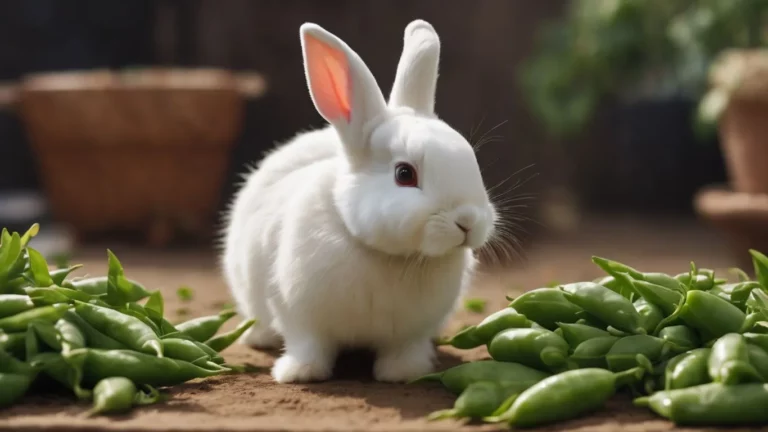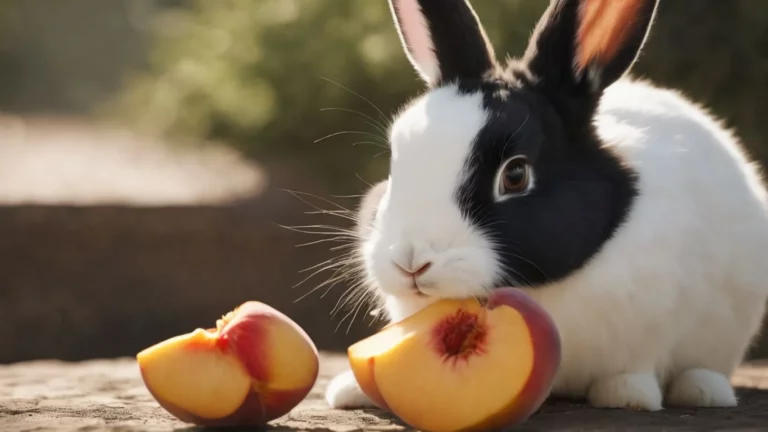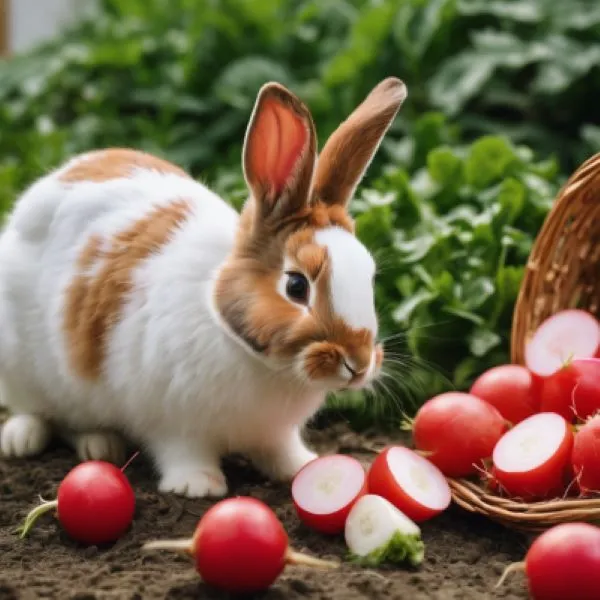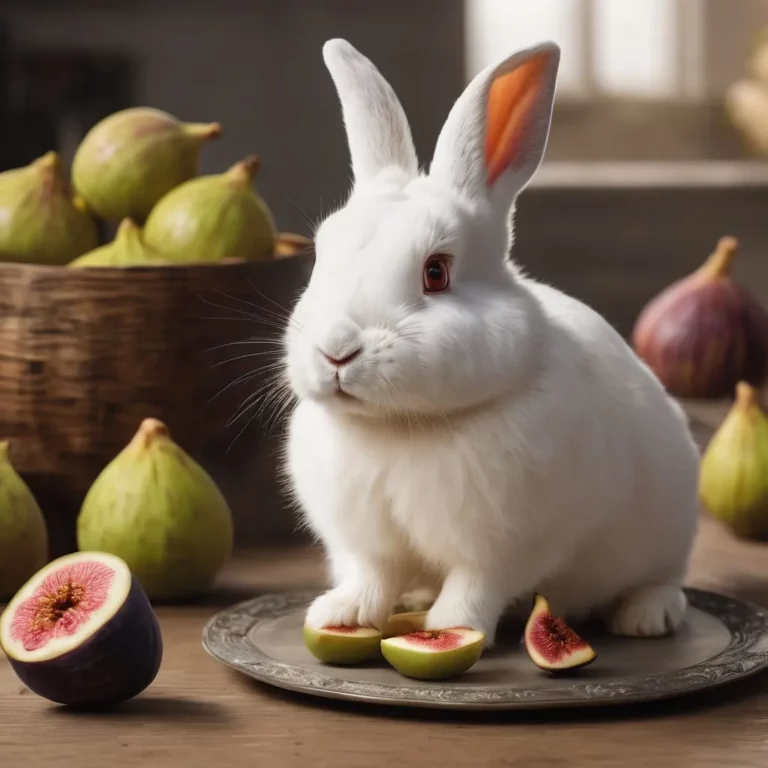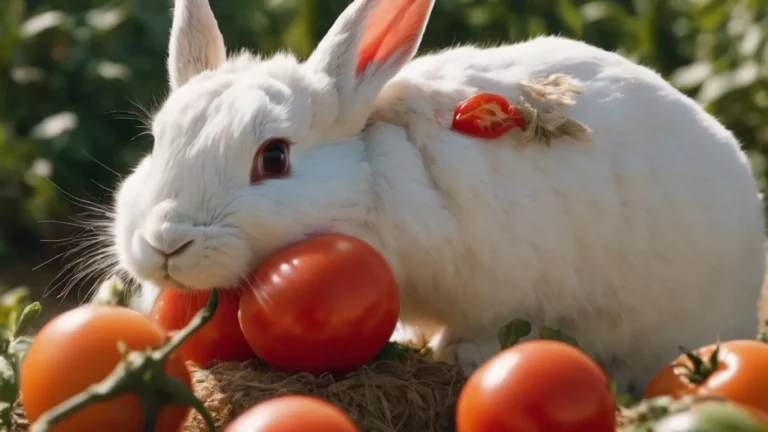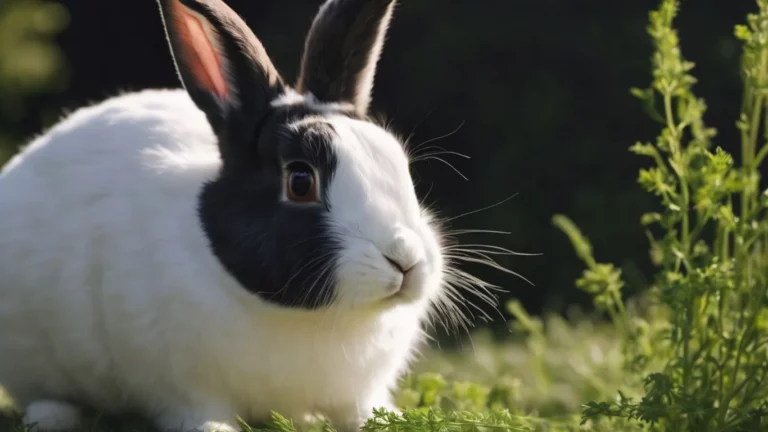Do Rabbits Eat Zinnias? What You Should know?
Rabbits are adorable and endearing pets, known for their inquisitive nature and insatiable appetite for all things green. As a responsible rabbit owner, you’re probably curious about what your furry friend can and cannot eat. Zinnias, with their vibrant and colorful blooms, might have caught your eye, but are they safe for rabbits to nibble on? In this blog, we’ll explore the topic of rabbits and zinnias, providing you with valuable insights to ensure your pet’s well-being.
Can Rabbits Eat Zinnias?
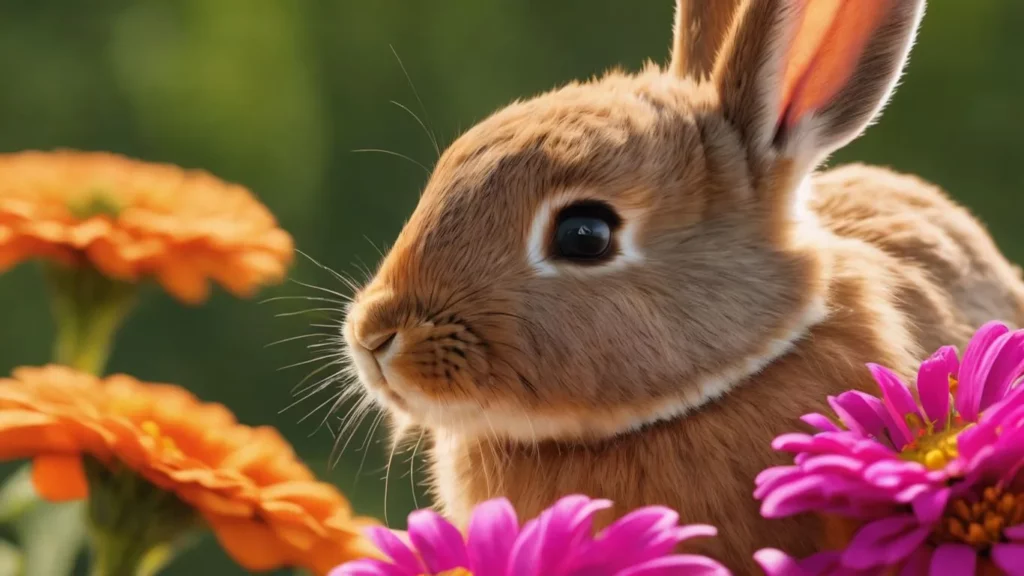
The short and straightforward answer is no, rabbits should not eat zinnias, regardless of whether they are fully grown flowers or young sprouts. Zinnias, scientifically known as Zinnia elegans, are toxic to rabbits. These cheerful garden flowers contain substances that can be harmful to our furry friends if ingested. Thus, it’s essential to keep them out of your rabbit’s reach.
Nutritional value of zinnias
| Nutrient | Amount per 100g |
|---|---|
| Calories | 23 kcal |
| Protein | 2.9 g |
| Carbohydrates | 3.3 g |
| Dietary Fiber | 1.6 g |
| Fat | 0.6 g |
| Vitamins and Minerals | |
| Vitamin A (beta-carotene) | 4,530 IU |
| Vitamin C | 48.4 mg |
| Vitamin E | 0.08 mg |
| Vitamin K | 4.1 µg |
| Folate (Vitamin B9) | 35 µg |
| Calcium | 12 mg |
| Iron | 0.61 mg |
| Magnesium | 21 mg |
| Phosphorus | 37 mg |
| Potassium | 285 mg |
Do Wild Bunnies Eat Zinnias?
Wild rabbits share similar dietary preferences with their domestic counterparts. Just like pet rabbits, wild bunnies are not inclined to munch on zinnia plants. They are more interested in finding grasses, weeds, and other wild greens to satisfy their nutritional needs. Therefore, if you’re concerned about wild rabbits damaging your zinnia garden, you can rest easy knowing that these beautiful flowers are not a part of their natural diet.
Do Rabbits Eat Zinnia Plants?
Rabbits, both domestic and wild, do not eat zinnia plants. However, it’s important to remember that rabbits are curious creatures and may occasionally nibble on non-toxic plants out of curiosity. While zinnias are safe from harm, some other garden plants may not be as fortunate. To protect your garden and beloved zinnias, consider these tips:
- Fencing: Installing a fence around your garden is one of the most effective ways to keep rabbits out. Make sure the fence is at least two feet high, as rabbits are skilled jumpers. You can also bury the bottom of the fence a few inches underground to prevent them from digging underneath.
- Natural Deterrents: Planting rabbit-repelling herbs like rosemary, mint, or marigolds around your zinnias can help deter these furry intruders. Their strong scents can mask the enticing aroma of your garden blooms.
- Repellents: There are commercial rabbit repellents available that you can spray on and around your zinnia plants. These products often contain natural ingredients that rabbits find unappealing, discouraging them from approaching your garden.
- Raised Beds: Consider planting your zinnias in raised beds. This not only makes it harder for rabbits to access your flowers but also provides better drainage for your plants.
- Scare Tactics: Placing scarecrows, aluminum foil strips, or motion-activated devices around your garden can startle rabbits and make them think twice before entering
Understanding the Risks
To comprehend why zinnias are a no-go for rabbits, it’s essential to understand the potential risks involved. Zinnias contain natural compounds called alkaloids, which are toxic to rabbits and many other animals. When consumed, these alkaloids can lead to a range of adverse effects, including:
- Gastrointestinal Distress: Rabbits are prone to digestive issues, and ingesting zinnias can exacerbate this problem, leading to symptoms like diarrhea, bloating, and discomfort.
- Nervous System Problems: Alkaloids found in zinnias can affect a rabbit’s nervous system, leading to seizures, muscle tremors, and other neurological symptoms.
- Respiratory Distress: In some cases, rabbits may experience difficulty breathing after ingesting zinnias, making it even more crucial to avoid this flower in their diet.
- Potential Fatality: While not all cases will result in death, severe zinnia poisoning can be life-threatening to rabbits. It’s always better to err on the side of caution.
Safe Alternatives for Your Rabbit
While zinnias are off the menu for your pet rabbit, there are plenty of safe and nutritious options to keep them happy and healthy. Opt for a diet primarily consisting of:
- Fresh Hay: High-quality grass hay should be the staple of your rabbit’s diet, providing essential fiber and keeping their teeth healthy.
- Fresh Vegetables: Offer a variety of fresh vegetables like leafy greens (e.g., kale, spinach, and romaine lettuce) and vegetables like carrots, bell peppers, and broccoli in moderation.
- Rabbit Pellets: High-quality rabbit pellets are designed to provide essential nutrients. Ensure they make up a small portion of your rabbit’s diet.
- Fresh Water: Make sure your rabbit always has access to clean, fresh water.
Conclusion
In the realm of rabbit care, knowledge is power, and understanding what your pet can and cannot eat is vital. While zinnias may captivate your garden with their vivid hues, it’s crucial to remember that they are not suitable for rabbit consumption. Always prioritize your furry friend’s health and well-being by providing a balanced and safe diet. If you suspect your rabbit has ingested zinnias or any other potentially toxic plant, consult your veterinarian immediately to ensure prompt and appropriate care. Your rabbit will thank you for it with many more years of hopping and binkying ahead!


